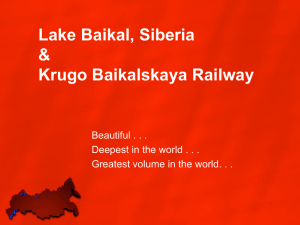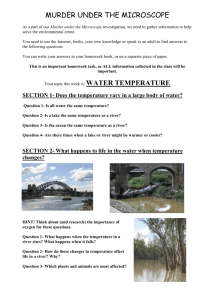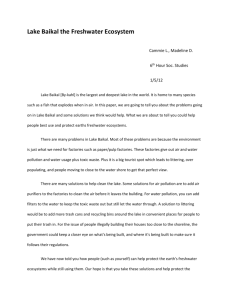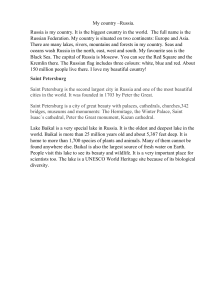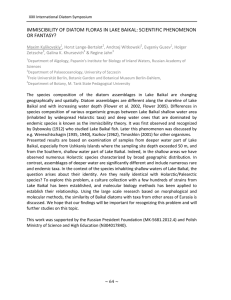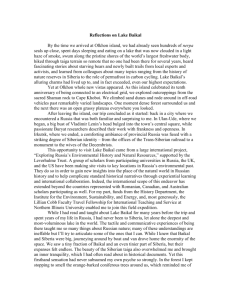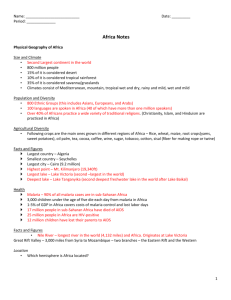Lake Baikal
advertisement
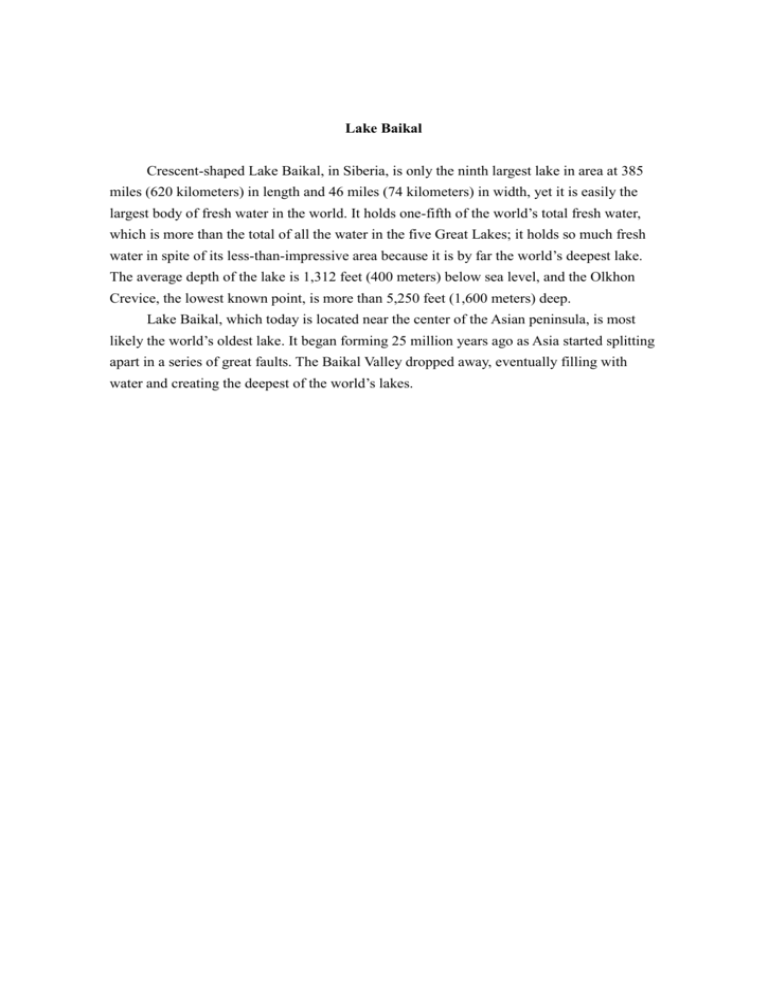
Lake Baikal Crescent-shaped Lake Baikal, in Siberia, is only the ninth largest lake in area at 385 miles (620 kilometers) in length and 46 miles (74 kilometers) in width, yet it is easily the largest body of fresh water in the world. It holds one-fifth of the world’s total fresh water, which is more than the total of all the water in the five Great Lakes; it holds so much fresh water in spite of its less-than-impressive area because it is by far the world’s deepest lake. The average depth of the lake is 1,312 feet (400 meters) below sea level, and the Olkhon Crevice, the lowest known point, is more than 5,250 feet (1,600 meters) deep. Lake Baikal, which today is located near the center of the Asian peninsula, is most likely the world’s oldest lake. It began forming 25 million years ago as Asia started splitting apart in a series of great faults. The Baikal Valley dropped away, eventually filling with water and creating the deepest of the world’s lakes.
